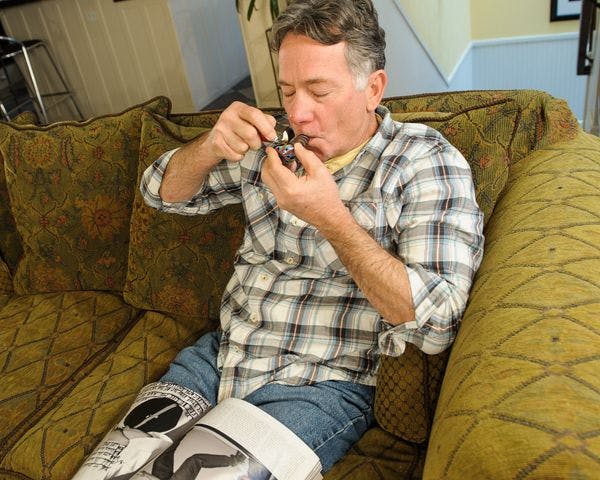Un groupe de vétérans réclame un assouplissement des restrictions sur le traitement du SSPT à l’aide de cannabis
Les expériences subjectives et la recherche en développement pointent vers les effets bénéfiques du cannabis pour le traitement du traumatisme cérébral (TC) et du syndrome de stress post-traumatique (SSPT). Pour en savoir plus, en anglais, veuillez lire les informations ci-dessous.
Abonnez-vous à l'Alerte mensuelle de l'IDPC pour recevoir des informations relatives à la politique des drogues.
By Tom Kutsch
Faced with stark numbers of brain trauma and psychological distress cases among combat veterans, the nation’s largest active veteran’s organization has thrown its weight behind the growing movement to push for relaxing federal restrictions on marijuana.
The American Legion, the nation’s largest wartime veterans organization, took a position on medical marijuana for the first time last week. At its national convention, it passed a resolution calling on Congress to amend its laws to “at a minimum ... recognize cannabis as a drug with potential medical value”.
Marijuana is currently classified by the Drug Enforcement Administration (DEA) as a Schedule 1 drug, putting it alongside drugs such as heroin and cocaine. The designation, which the DEA reaffirmed last month, means that the federal government officially believes there is no “accepted medical use” for the drug.
“It’s a tool in a toolbox,” said William Detweiler, who serves as the chairman of the American Legion’s traumatic brain injuries (TBI) and post-traumatic stress disorder (PTSD) committee and who is a past national commander of the organization. “We’re not advocating the use of marijuana or any other drugs,” but he said veterans “have a right to anything that may help them”.
Click here to read the full article.
Keep up-to-date with drug policy developments by subscribing to the IDPC Monthly Alert.
Thumbnail: Darrin Harris Frisby/Drug Policy Alliance
